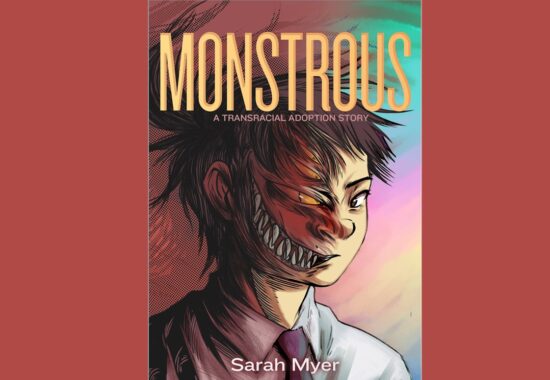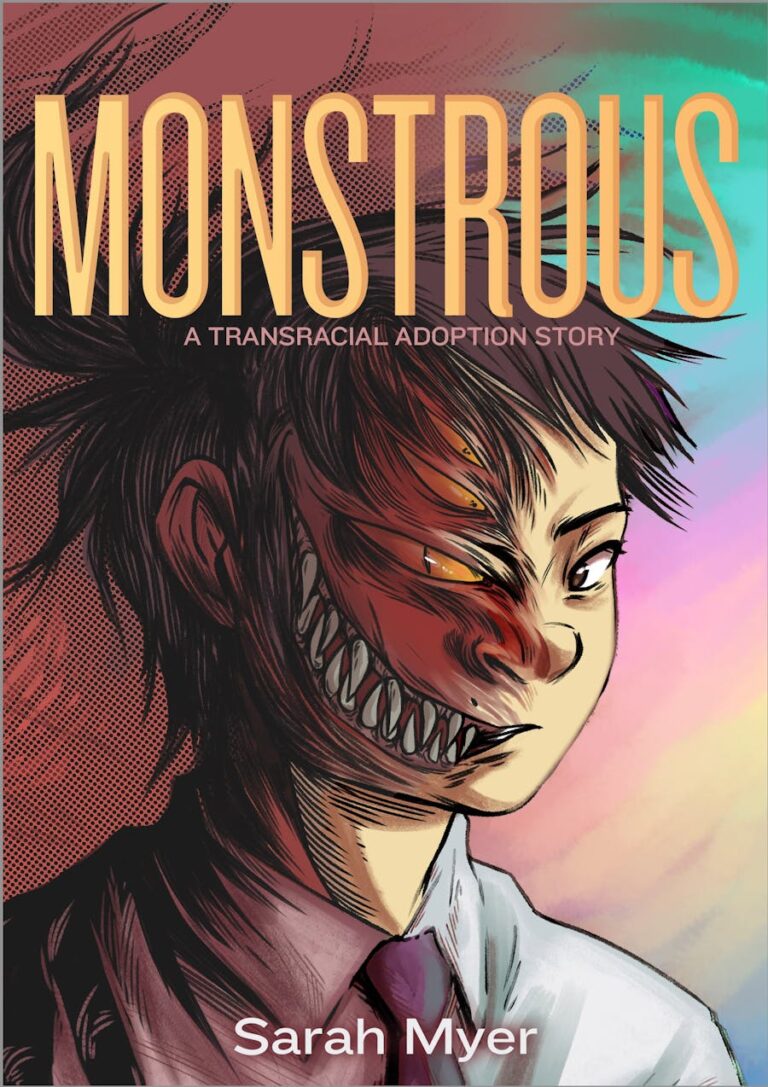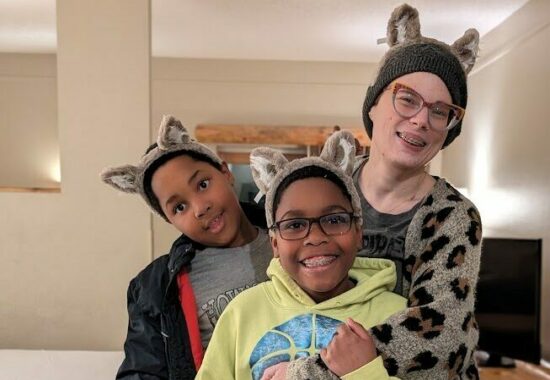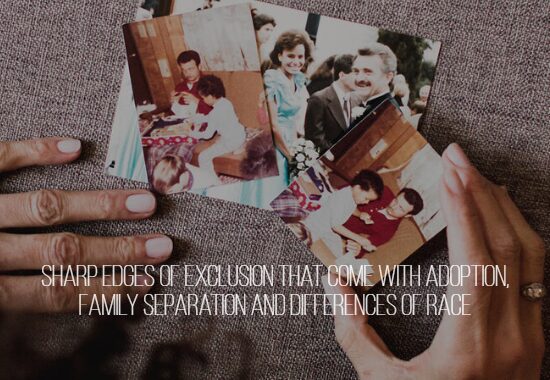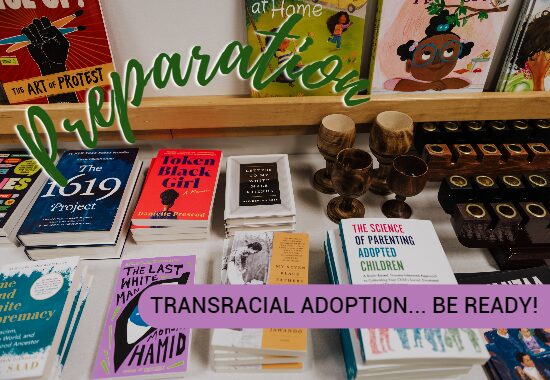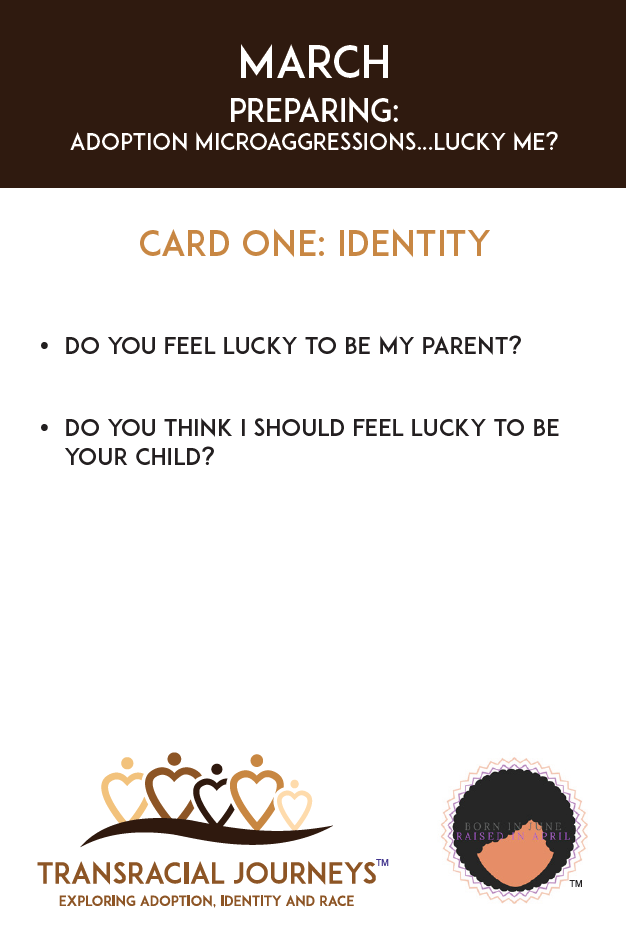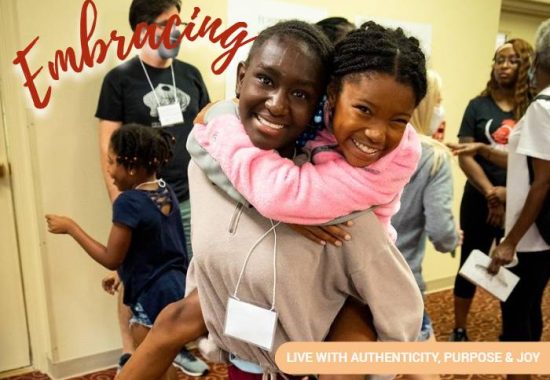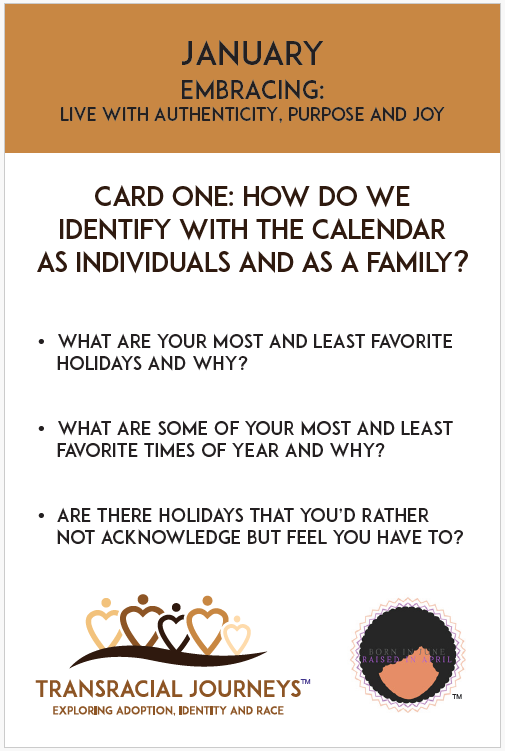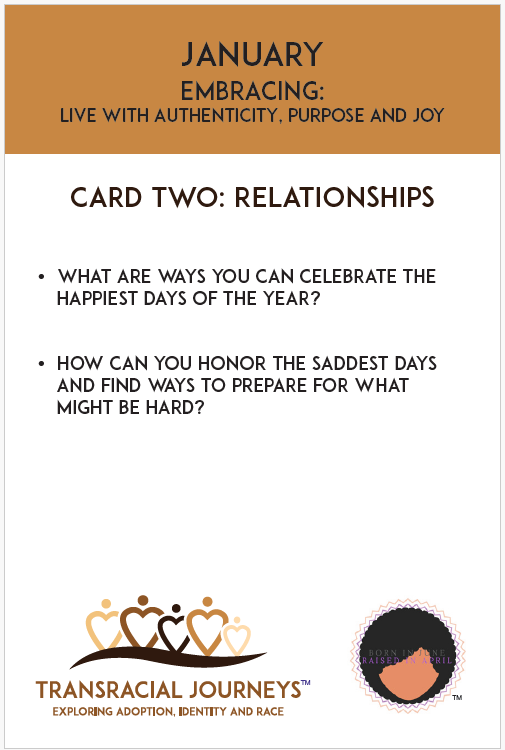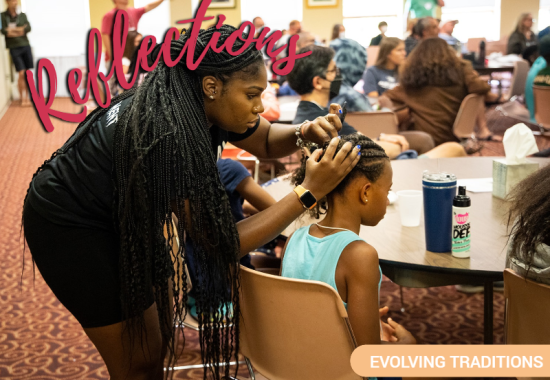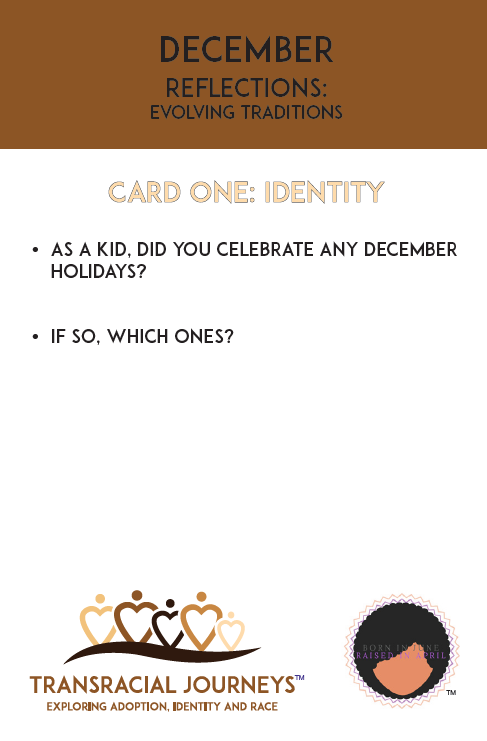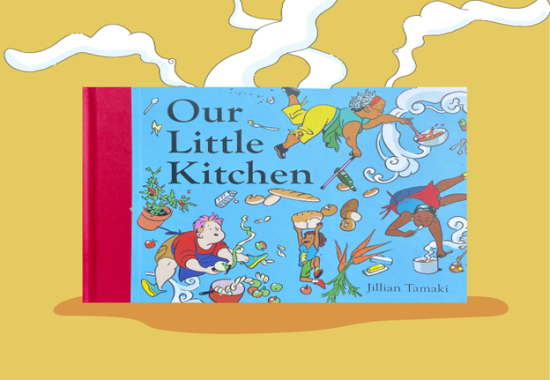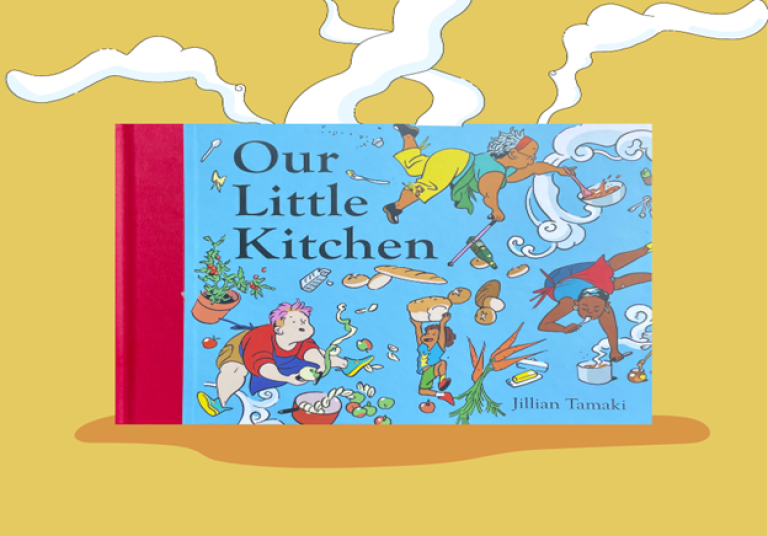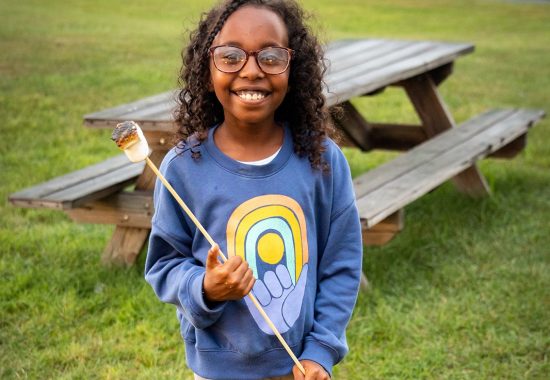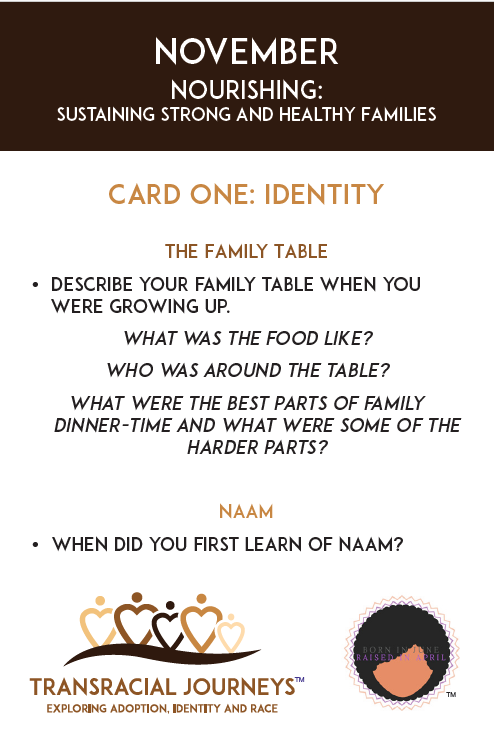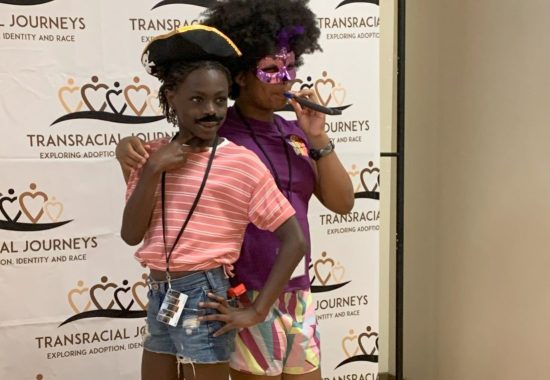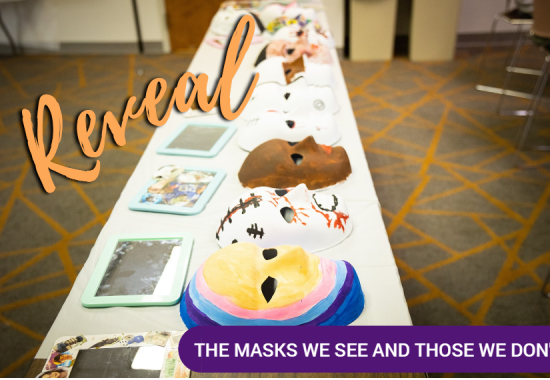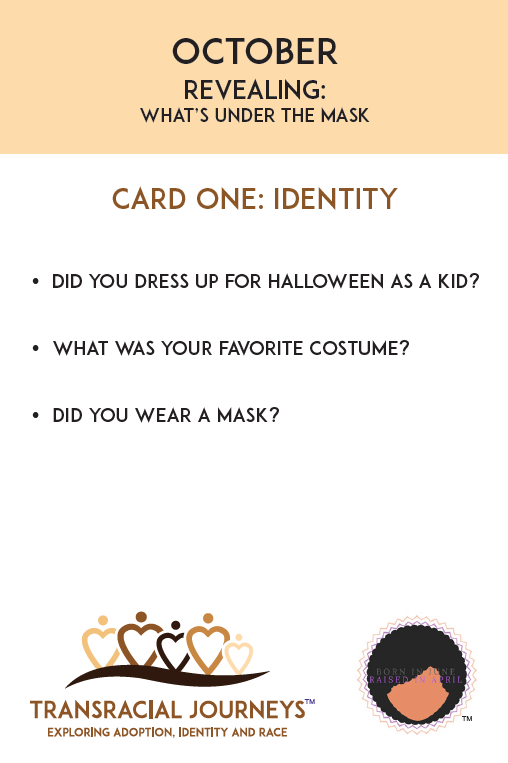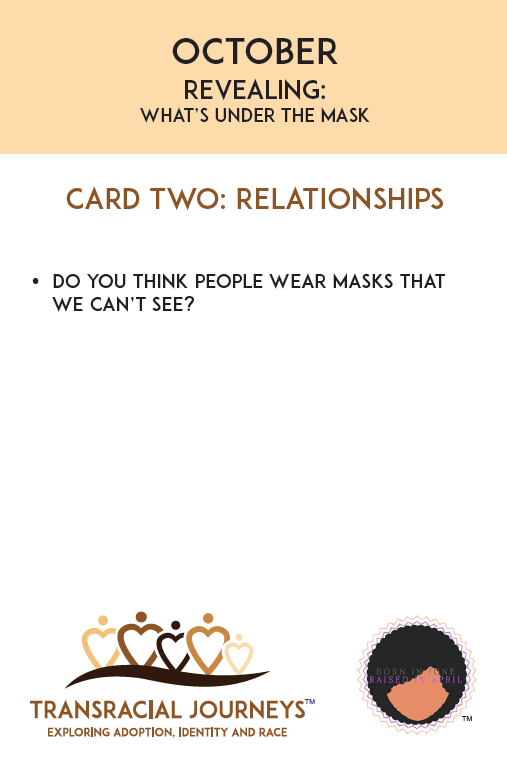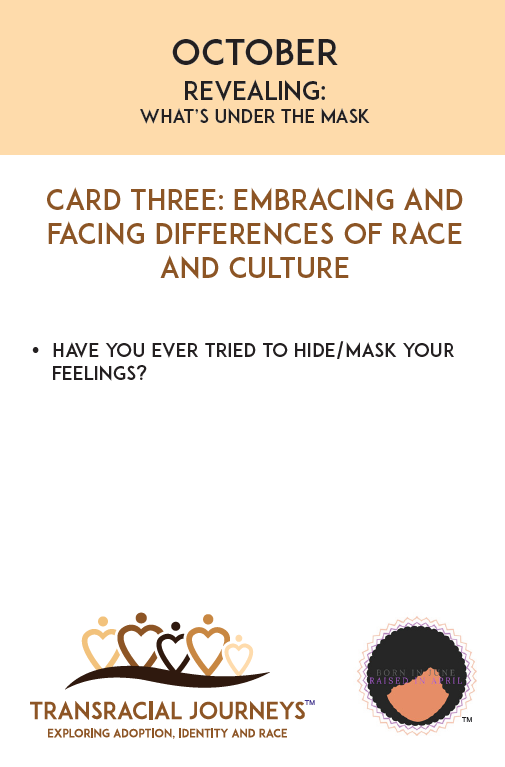Reviewed by Rebecca Howe
Monstrous, by Sarah Myer
Monstrous is a young adult graphic novel memoir written and illustrated by nonbinary comic artist and transracial adoptee Sarah Myer. The story is about Myer's childhood years in the 1990s and early 2000s in rural Maryland, taking us from an imaginative and emotionally explosive early childhood, through an adolescence rife with bullying, racism, homophobia, ableism, mental health struggles and the protagonist's reckoning with identity, how to stick up for themselves, take responsibility for themselves and find self-acceptance, all with the help of art and anime.
Sarah was adopted from Korea by white parents as an infant, and they live in rural Maryland on a farm. Sarah becomes obsessed with making art after seeing the Little Mermaid with their mom as a preschooler. They don’t want to play dolls the way the girls want to, and they play well with the boys until they are told to go away for not being a boy. When Sarah sees a Sailor Moon cartoon on tv, their entire world begins to change, as anime shows them a world wider and more diverse than their physical community, and eventually leads them to find other artists and people who think more like they do and accept them for who they are.
Sarah struggles with turning to violence as the only way they can defend themselves when adults at school won't help, and pushes friends away as a way to process self-rejection and the overwhelming negativity coming at them daily. By the time Sarah is finishing high school, they have found a few good, safe friends in theater and through anime, and upon finally watching Neon Genesis Evangelion, find the empowerment they need to realize they are the only person who can decide what their life gets to be. We get to see Sarah's return to their childhood self to nurture their own sense of belonging, acceptance, kindness and excitement for the future.
Monstrous is a raw, emotional ode to being yourself and keeping your heart intact when others are hateful, and through periods when you might not know how to hold on to yourself anymore. While transracial adoption and racism is a big theme in this book, there are many intersectional layers to this story that will be relevant to a wide range of readers. This young adult book is marketed to people ages 14-18, but I would recommend this book to kids as young as 11, with the understanding that there are a few slight references to sex and a handful of scenes with violence in them, including illustrated images of the monster Sarah imagines lives inside them. I would also recommend this book to all adults who’ve ever felt a disconnect from their communities, or who love anime, or who love to get their hearts tugged on by a strong, imperfect, lovable protagonist who becomes the hero they never knew they could be.
Book Recommendations for Families Created in Transracial Adoption
Rebecca Howe is a white adoptive parent who is an author and artist and works in children’s literature.

